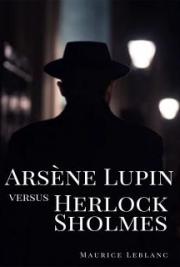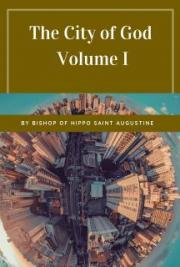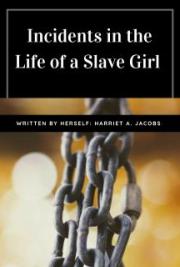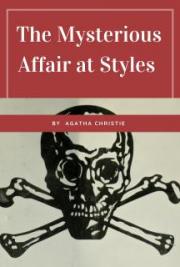Chapter 52
Thanksgiving of the year of our Lord 1919 saw many changes. It saw, slowly emerging from the chaos of war, new nations, like children, taking their first feeble steps. It saw a socialism which, born at full term might have thrived, prematurely and forcibly delivered, and making a valiant but losing fight for life. It saw that war is never good, but always evil; that war takes everything and gives nothing, save that sometimes a man may lose the whole world and gain his own soul.
It saw old Anthony Cardew gone to his fathers, into the vast democracy of heaven, and Louis Akers passed through the Traitors' Gate of eternity to be judged and perhaps reprieved. For a man is many men, good and bad, and the Judge of the Tower of Heaven is a just Judge.
It saw Jim Doyle a fugitive, Woslosky dead, and the Russian, Ross, bland, cunning and eternally plotting, in New England under another name. And Mr. Hendricks ordering a new suit for the day of taking office. And Doctor Smalley tying a bunch of chrysanthemums on Annabelle, against a football game, and taking a pretty nurse to see it.
It saw Ellen roasting a turkey, and a strange young man in the Eagle Pharmacy, a young man who did not smoke a pipe, and allowed no visitors in the back room. And it saw Willy Cameron in the laboratory of the reopened Cardew Mills, dealing in tons instead of grains and drams, and learning to touch any piece of metal in the mill with a moistened fore-finger before he sat down upon it.
* * * * *
But it saw more than that.
On the evening of Thanksgiving Day there was an air of repressed excitement about the Cardew house. Mademoiselle, in a new silk dress, ran about the lower floor, followed by an agitated Grayson with a cloth, for Mademoiselle was shifting ceaselessly and with trembling hands vases of flowers, and spilling water at each shift. At six o'clock had arrived a large square white box, which the footman had carried to the rear and there exhibited, allowing a palpitating cook, scullery maid and divers other excitable and emotional women to peep within.
After which he tied it up again and carried it upstairs.
At seven o'clock Elinor Cardew, lovely in black satin, was carried down the stairs and placed in a position which commanded both the hall and the drawing-room. For some strange reason it was essential that she should see both.
At seven-thirty came in a rush:
(a) - Mr. Alston Denslow, in evening clothes and gardenia, and feeling in his right waist-coat pocket nervously every few minutes.
(b) - An excited woman of middle age, in a black silk dress still faintly bearing the creases of five days in a trunk, and accompanied by a mongrel dog, both being taken upstairs by Grayson, Mademoiselle, Pink, and Howard Cardew. ("He said Jinx was to come," she explained breathlessly to her bodyguard. "I never knew such a boy!")
(c) - Mr. Davis, in a frock coat and white lawn tie, and taken upstairs by Grayson, who mistook him for the bishop.
(d) - Aunt Caroline, in her diamond dog collar and purple velvet, and determined to make the best of things.
(e) - The real bishop this time, and his assistant, followed by a valet with a suitcase, containing the proper habiliments for a prince of the church while functioning. (A military term, since the Bishop had been in the army.)
(f) - A few unimportant important people, very curious, and the women uncertain about the proper garb for a festive occasion in a house of mourning.
(g) - Set of silver table vases, belated.
(h) - Mr. and Mrs. Hendricks, Mayor and Mayoress-elect. Extremely dignified.
(i) - An overfull taxicab, containing inside it Ellen, Edith, Dan and Joe. The overflow, consisting of a tall young man, displaying repressed excitement and new evening clothes, with gardenia, sat on the seat outside beside the chauffeur and repeated to himself a sort of chant accompanied by furious searchings of his pockets. "Money. Checkbook. Tickets. Trunk checks," was the burden of his song.
(j) - Doctor Smalley and Annabelle. He left Annabelle outside.
* * * * *
The city moved on about its business. In thousands of homes the lights shone down on little family groups, infinitely tender little groups. The workers of the city were there, the doors shut, the fires burning. To each man the thing he had earned, not the thing that he took. To all men the right to labor, to love, and to rest. To children, the right to play. To women, the hearth, and the peace of the hearth. To lovers, love, and marriage, and home.
The city moved on about its business, and its business was homes.
* * * * *
At the great organ behind the staircase the organist sat. In stiff rows near him were the Cardew servants, marshaled by Grayson and in their best.
Grayson stood, very rigid, and waited. And as he waited he kept his eyes on the portrait of old Anthony, in the drawing-room beyond. There was a fixed, rapt look in Grayson's eyes, and there was reassurance. It was as though he would say to the portrait: "It has all come out very well, you see, sir. It always works out somehow. We worry and fret, we old ones, but the young come along, and somehow or other they manage, sir."
What he actually said was to tell a house maid to stop sniveling.
Over the house was the strange hush of waiting. It had waited before this, for birth and for death, but never before -
The Bishop was waiting also, and he too had his eyes fixed on old Anthony's portrait, a straight, level-eyed gaze, as of man to man, as of prince of the church to prince of industry. The Bishop's eyes said: "All shall be done properly and in order, and as befits the Cardews, Anthony."
The Bishop was as successful in his line as Anthony Cardew had been in his. He cleared his throat.
The organist sat at the great organ behind the staircase, waiting. He was playing very softly, with his eyes turned up. He had played the same music many times before, and always he felt very solemn, as one who makes history. He sighed. Sometimes it seemed to him that he was only an accompaniment to life, to which others sang and prayed, were christened, confirmed and married. But what was the song without the music? He wished the scullery maid would stop crying.
Grayson touched him on the arm. "All ready, sir," he said.
*****
Willy Cameron stood at the foot of the staircase, looking up.
** End **







